Affiliate Disclaimer
Some links in this article are affiliate links. We may earn a small commission if you make a purchase through these links, at no extra cost to you. We only recommend products we find useful to our readersPregnancy is perhaps one of the happiest phases in a woman’s life. But it may be accompanied by some horror and pain combined. People often highlight the pain a mother feels while they are delivering their baby. Still, there are several other discomforts that a mother faces while pregnant—odd food cravings and constipation during pregnancy tops that list.
Constipation during pregnancy is a widespread complaint and happens to three out of five pregnant women. Let’s explore some natural remedies to help cure constipation during pregnancy.
Why Do You Get Constipated During Pregnancy?
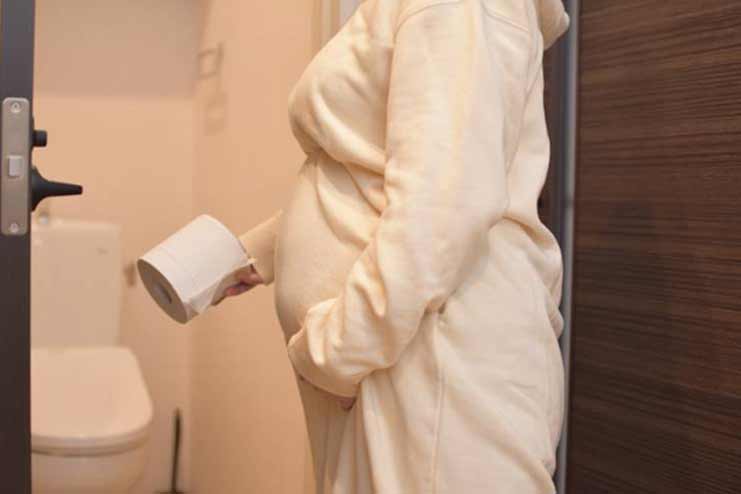
Constipation during pregnancy might happen frequently, but have you ever wondered what causes it? Experts suggest that there is no one specific cause, but multiple factors that may lead to constipation during pregnancy. Some of the most common causes of constipation during pregnancy include:
- Additional Stress: Firstly, pregnancy brings a lot of additional stress, little to no activity, and sometimes a lack of a fiber-rich diet. All of these are key contributors to irregular bowel movements.
- Hormonal Changes: Secondly, hormonal changes in the body affect digestion and food absorption, which, in turn, further contributes to constipation. The hormone progesterone helps relax muscles of the body, including the small intestine. The muscles delay the passage of food through them, contributing to constipation during pregnancy.
- Iron Supplements: Thirdly, the intake of iron supplements hardens the feces and makes it harder for a pregnant woman to poop and excrete toxins from the body. In such cases, drinking plenty of water helps keep this problem at bay.
Symptoms of Constipation During Pregnancy
We have mentioned the possible causes and the remedies that can help cure the signs and symptoms of pregnancy constipation. But, have you ever wondered what these signs and symptoms are that indicate the problem? Common symptoms of constipation during pregnancy include:
- Irregular bowel movements, only two to three times a week at most
- Painful bowel movements
- Hard feces
- Bloating in the stomach
- Uneasiness around the abdominal region accompanied by abdominal pain.
When Does Constipation in Pregnancy Start?
Constipation during pregnancy doesn’t have a specific set course of events. It may occur at any stage throughout the pregnancy—in the initial, middle, or sometimes even at the penultimate times.
It doesn’t have a specific timing. Instead, it depends on the level of activity or lack thereof in a pregnant woman’s routine. Expectant mothers who stay active and eat healthy do not experience this problem.
What Should One Not Do During Constipation In Pregnancy?
- Avoid inactivity. Being physically inactive tends to slow down digestion, which can cause constipation and reduce metabolism.
- Try to avoid taking iron supplements; instead, eat fruits and vegetables that can help with the body’s iron requirement.
- Don’t skip meals just because you’re constipated. Skipping meals can lead to a lack of nutrition in the body, which can have adverse effects.
- Avoid canned food and caffeine
- Don’t go overboard with the supplement laxatives because that can often trigger excessive action in the gut, thus worsening the situation.
- Don’t strain or put more pressure while defecating than necessary. It can often exert pressure in the womb, which can be bad for the fetus.
- If you are opting for home remedies, stick with one or two, and don’t experiment too much with the natural laxative properties of these foods.
Side Effects of Pregnancy Constipation
Constipation during pregnancy has some side effects that need to be handled carefully. If you find these symptoms lingering after administering the remedies, it is always best to reach out to a doctor and not wait for it to worsen. Some of the common side effects of pregnancy constipation include:
- Cramps
- Back Pain
- Nausea
- Hemorrhoids
- Rectal Bleeding
When should you see a doctor for constipation during pregnancy?
It is best to consult a doctor before taking any medication for constipation or trying any kind of home remedy. That being said, if you see persistent symptoms of constipation even after administering medicines or treatments, several other reasons can affect digestion and bowel movement, so it is best to consult the doctor before the situation worsens.
How to Relieve Constipation?

During pregnancy, irregular bowel movements, abdominal pain, and a feeling of bloating characterize constipation. Sticking to a strict diet and clean lifestyle is best to ensure pregnancy constipation relief. Some preventive measures for constipation include:
- Fiber-Rich Diet: Start with a fiber-rich diet, including vegetables, fruits, cereals, grains, etc. It is necessary to ensure that a pregnant woman consumes at least 25-30 grams of fiber daily without fail, and that too from healthy food.
- Increase Water Intake: Drink more water and fluids to ensure that feces is soft and doesn’t restrict bowel movement..
- Exercise: Make sure that the exercise regime you choose is safe for pregnancy and will not harm you or the baby.
If no natural treatment methods work, it is best to contact your doctor and let them prescribe an over-the-counter or prescription remedy. There are a number of products available in the market that help regulate bowel movements and relieve constipation during the gestation period.
But before you buy some medications, try some of the home remedies listed below, some of which may be helpful in relieving constipation during your pregnancy.

13 Simple Home Remedies for Constipation During Pregnancy
1. Aloe Vera Juice

Aloe vera juice is often recommended to relieve constipation during pregnancy. This succulent plant contains bioactive substances called anthraquinones, a mild laxative for easier digestion and bowel motions. Because of its high fiber content, stools have more volume and are easier to pass without straining, which many pregnant mothers worry about.
Pegnant women should be cautious when using it. When used topically or in modest doses, people generally consider aloe vera harmless; however, taking it orally, especially in large doses, may cause uterine contractions, which could be dangerous during pregnancy.
2. Fiber-Rich Foods
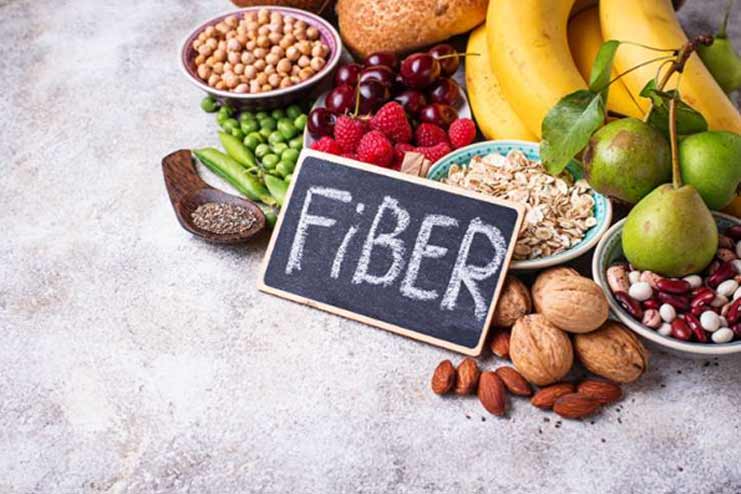
Fiber is essential for maintaining regular bowel motions and the general health of the digestive system. It includes various plant-based materials indigestible to humans but necessary for gut health maintenance. You may efficiently increase your fiber intake by including a variety of high-fiber foods in your daily diet, such as whole grains like brown rice and oats, as well as a vibrant assortment of fruits, vegetables, and legumes.
By giving stools more volume, these foods aid in controlling bowel movements and averting constipation. In the digestive system, fiber also has the same effect as a sponge, absorbing water, softening, and making feces easier to pass. Slow-digesting complex carbohydrates in whole grains ensures continuous energy release and prolonged digestion.
3. Prune Juice
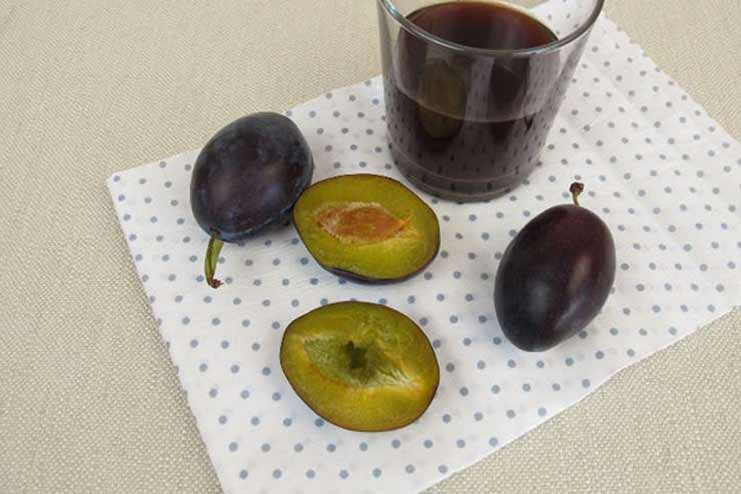
The natural potential of prune juice to successfully alleviate constipation is well known. Due to its high sorbitol content—a sugar alcohol with modest laxative qualities—it acts as a mild but effective natural laxative. Sorbitol softens feces and facilitates easier passage by attracting water into the intestines.
Prune juice is an excellent option for pregnant women experiencing constipation because it lacks potent stimulants that can be harmful. Prune juice stimulates the intestines’ natural contractions, which facilitate waste removal and help maintain bowel regularity. In addition to being an excellent supplement to a balanced diet during pregnancy, its natural sugars offer a quick energy boost.
4. Drinking Plenty of Water

Maintaining adequate hydration is essential for managing and preventing constipation, particularly during pregnancy. Sufficient water intake keeps feces soft and makes it easier for them to travel through the intestines, contributing to good digestive function.
It is advised that expectant mothers prioritize staying hydrated throughout the day by drinking eight to ten glasses daily. It guarantees enough water in the body to promote regular bowel motions and general wellness. Water is essential for softening the contents of the digestive tract so that they can pass more efficiently without straining, which can be painful and sometimes dangerous when pregnant.
5. Flaxseed Oil
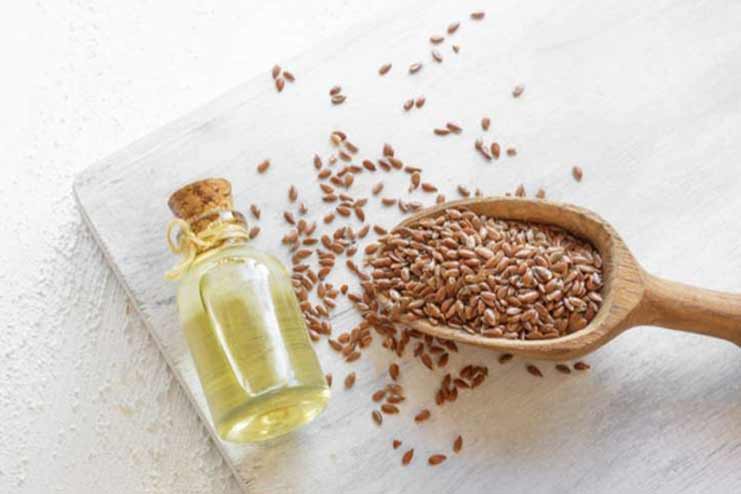
The high omega-3 fatty acid content of flaxseed oil is well regarded for its beneficial effects on health, particularly during pregnancy. In addition to supporting digestive function, these essential fatty acids play a significant role in maintaining overall health.
The omega-3 fatty acids found in flaxseed oil lubricate the intestines, which facilitates the smooth passage of feces and reduces the chance of constipation.
6. Magnesium-Rich Foods
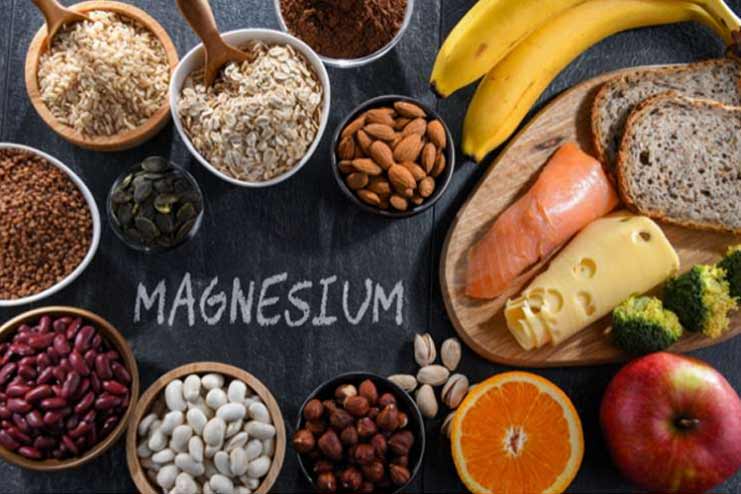
Magnesium is a necessary element that is well-known for helping to relax muscles, including those in the digestive system. Sustaining sufficient magnesium levels throughout pregnancy may be especially helpful for promoting regular bowel movements and reducing constipation.
Natural sources of this essential mineral include:
- Leafy greens (like spinach and kale)
- Nuts (like almonds and cashews)
- Seeds (like pumpkin and sunflower seeds)
- Whole grains (quinoa and brown rice)
Magnesium helps control the contraction of the smooth muscles of the intestines. Regularizing peristalsis, the wave-like movements that carry food through the digestive tract, can prevent and alleviate constipation.
7. Herbal Teas (like Chamomile or Peppermint)

Herbal teas with calming and mildly laxative effects, like chamomile or peppermint, are prized for their therapeutic benefits in supporting digestive health. The mildly soothing properties of chamomile tea are well-known for their ability to relieve discomfort and promote regular bowel motions in the digestive system. On the other hand, menthol, which is present in peppermint tea, helps to ease digestion by relaxing the muscles in the digestive tract.
Although herbal teas can give a natural solution for constipation, pregnant women should proceed with caution and speak with their healthcare professional before introducing herbal teas into their daily routine.
8. Probiotics

Probiotics are essential for maintaining digestive health because they promote a balanced gut microbiota, especially during pregnancy. These bacteria support healthy gastrointestinal function by controlling bowel motions. Probiotics aid in vitamin synthesis, food digestion, and the upkeep of a healthy intestinal environment, all of which can lessen the symptoms of constipation and other digestive discomforts frequently seen during pregnancy.
Fermented foods like yogurt and kefir, which have live cultures of Lactobacillus and Bifidobacterium species that benefit the digestive system, are a natural source of probiotics. Sustaining a healthy gut flora throughout pregnancy is critical for the best possible immune system and nutrition absorption.
9. Warm Drinks

Warm liquids, such as warm lemon water or herbal teas like ginger tea, provide calming comfort and encourage a healthy digestive system, which makes them especially helpful for easing constipation during pregnancy.
Ginger tea facilitates better digestion by moving food through the digestive tract more easily. It is well known for its anti-inflammatory qualities and capacity to increase stomach activity. Additionally, it lessens bloating and eases gastrointestinal discomfort, which are common issues for expectant mothers. Similarly, warm lemon water acts as a mild detoxifier, bolstering liver function and encouraging hydration, which is necessary to keep stools smooth.
10. Dried Fruits (like Figs or Apricots)
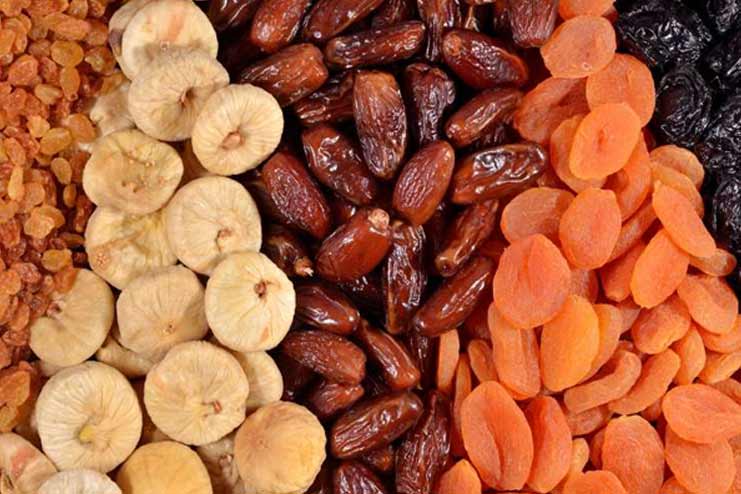
Since they are high in sorbitol and fiber, dried fruits like figs and apricots are highly valued for their innate capacity to relieve constipation, especially during pregnancy. Fiber gives feces volume, facilitating their transit through the digestive system and lessening constipation’s unpleasant side effects.
Furthermore, these fruits naturally contain sorbitol, a sugar alcohol that draws water into the intestines to soften stools and promote regular bowel movements. Figs, which have a chewy, sweet taste, are very high in dietary fiber, both soluble and insoluble, which are suitable for the digestive system.
11. Massage and Abdominal Exercises

Targeted abdominal workouts and gentle massage therapies can be helpful in facilitating bowel motions by stimulating intestinal muscular contractions. The enlarging uterus and hormonal changes during pregnancy might cause constipation and slow digestion.
To assist regular bowel movements and reduce discomfort, a gentle abdominal massage can help stimulate peristalsis, the wave-like muscular contractions that move food down the digestive tract. Maintaining intestinal health can also benefit from pregnancy-specific abdominal workouts, including leg lifts, pelvic tilts, and mild twists.
12. Yoga and Relaxation Techniques

Prenatal yoga integrates stress-relieving relaxation techniques with gentle physical postures to provide a comprehensive approach to supporting intestinal health during pregnancy. Stress can impede digestion by slowing intestinal motility and worsening constipation symptoms.
Prenatal yoga uses relaxing techniques that promote general well-being to help lessen these impacts. Pregnancy-specific yoga positions, like moderate twists and postures that entail mild abdominal compression, can be especially helpful in alleviating constipation.
13. Exercise and Physical Activity

Prenatal yoga or walking are two accessible forms of exercise you may incorporate into your routine to help with digestion and constipation relief during pregnancy. Physical exercise activates the muscles in the abdomen and pelvis, facilitating more effective digestion and elimination of waste products.
Gentle movement throughout the body, including the digestive tract, is encouraged by exercises like walking, which help control bowel function and reduce the discomfort brought on by constipation. Specifically created for expectant mothers, prenatal yoga includes stretches and poses that can improve circulation and massage the abdominal organs.
How Does Exercise Help?
When it comes to how exercise is beneficial in the treatment of pregnancy constipation, it helps reduce the time spared by the food in the large intestine, where most of the water absorption takes place. Less water absorption keeps the stool softened and thus helps in smooth defecation without any added pain. Not just that, several kinds of exercises help improve breathing and heart rate, ensuring smoother contraction of the intestine muscles for easier defecation.
When is the Best Time to Exercise?
A fundamental question could make or break the results you expect from the exercises. Knowing when to perform the exercises and which timings are a no-go. For most cases of constipation treatment with exercises, most doctors suggest doing them after an hour or two after consuming a meal. After an hour or so of food ingestion, the blood flows directly through the stomach, which contributes to the proper digestion of the food, which in turn promotes relieving the signs of constipation.
What Are The Best Exercises For Treating Constipation During Pregnancy?
Most doctors suggest that pregnant women do several exercises, including proper stretching of the muscles around the gut and surrounding regions, which promotes better digestion and, in turn, better bowel movements.
It is necessary never to overdo any part of the exercise because it can negatively impact the body. Stretching with an exercise ball, light-handed aerobics, and even a few types of yoga help alleviate the symptoms of constipation during pregnancy.
Food for Thought With Some FAQs:
1. Can Constipation Lead to Problems in Pregnancy?
While constipation might not be much of an issue during the initial stages of pregnancy, if it persists, it can cause problems in the later stages. It is necessary to ensure that the mother’s body is devoid of toxins because the fetus entirely relies on the mother for food and nutrition.
2. Is it safe to push while being constipated during pregnancy?
The only downside of pushing too hard during constipation is the possibility of having hemorrhoids, and those are painful. Experts suggest that pushing during pooping doesn’t necessarily cause problems for the mother or the baby, but it is better not to go overboard with it.
-
June 2018Written by Somapika D
-
Sep 2024Edited by Ankita
References
- https://www.momjunction.com/articles/remedies-to-treat-constipation-during-pregnancy_00336613/
- https://my.clevelandclinic.org/health/diseases/21895-pregnancy-constipation
- https://www.stylecraze.com/articles/home-remedies-to-treat-constipation-during-pregnancy/
- https://www.medicalnewstoday.com/articles/318694#water
- https://www.healthline.com/health/pregnancy/constipation-remedies#3
- https://www.mayoclinic.org/healthy-lifestyle/pregnancy-week-by-week/expert-answers/pregnancy-constipation/faq-20058550
- https://parenting.firstcry.com/articles/10-best-home-remedies-for-constipation-during-pregnancy/
- https://www.gentlenursery.com/organic-pregnancy/constipation-during-pregnancy/
- https://www.vinmec.com/en/gastroenterology-hepatobiliary/health-news/13-home-remedies-to-relieve-constipation-naturally/
- https://www.mamanatural.com/constipation-in-pregnancy/
- https://mommylabornurse.com/constipation-during-pregnancy/
In this Article




















